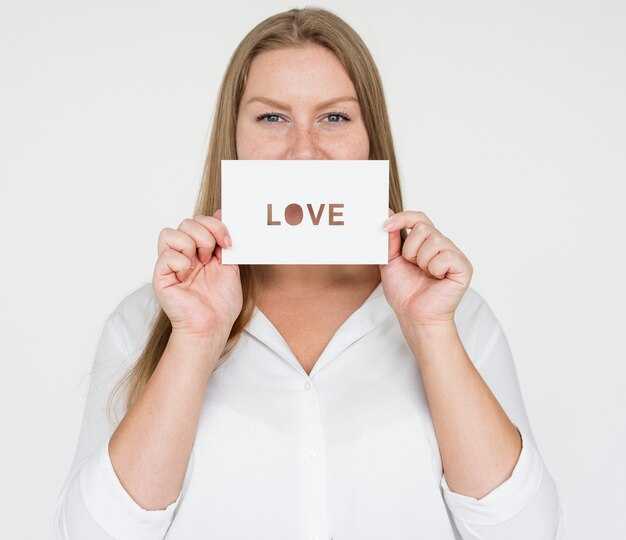When parents are so wrapped up in themselves that they barely notice or truly know their children, it’s common for those children to grow up with a certain sharpness — a guarded anger or a steely edge that serves as armor against further hurt. Has that been your experience? Another way this shows up is as a forceful, prove-yourself energy, as if who you are and what you’ve achieved won’t speak for themselves and you must continually convince others. That tendency often comes from being defended rather than nurtured — it doesn’t usually attract love. My letter today comes from a woman I’ll call Sylvie. She writes: “Hello Anna, I’m 38 and my cab light is broken.” Alright — I’m going to say up front that I’ve got my highlighter out; I’ll mark things to circle back to on a second read, and now we’ll go through her note. Sylvie mentions her “cab light” is broken. Around here we use that phrase — I think it came from TV — to mean the subtle aura you give off when you’re open to a relationship. Sometimes you’re invisible and then suddenly things change and people begin to notice and ask you out. We call that your cab light, like the illuminated sign on a taxi that shows when it’s free and has no passenger. Got it? OK. She says, “I’m 38 and my cab light is broken. I grew up with a very narcissistic, neglectful, emotionally abusive mother and a father who was absent and pretended nothing was wrong. I haven’t spoken to her in over 20 years, and that decision is one of the best I’ve ever made. Without writing pages of detail, I basically grew up like Cinderella — except there was no glass slipper at the end. Instead I put all my energy into improving myself: for more than a decade I woke at 4:00 a.m. to work on my life. I now hold four degrees and a long list of achievements on paper. By the resume, I’m the ideal person to marry: accomplished, kind, independent, extroverted, and I don’t think I’m unattractive. That mix confuses me slightly, but we’ll revisit that. Still, I can sit in a bar by myself every night and nobody will approach me. Occasionally some gross, horny older man will start a conversation, but nothing worthwhile. You talk on your podcast about people always having some kind of situationship or involvement with a man — that’s not something I recognize, because I haven’t had one in nearly ten years. I don’t feel desperate and I greatly enjoy my independence, yet I don’t display many of the usual traits that keep people alone. I’m extroverted and enjoy socializing with the right people; I don’t isolate. I am empathetic, although limited — thanks, Mom. I’m critical but I keep it inside, so people aren’t aware. Empathy was something I had to intentionally learn because my mother had none; she’d tell you to your face you looked ugly and to smile even if you were dying. Maybe it’s because I never formed the most essential relationship, the one with a parent — I never had that bond because I wasn’t worthy of their attention. Today, if you asked them anything about me they’d be stumped and would make things up. I’m really sorry about that. I was in a relationship at 15 with someone who changed my life for the better, but he died in a car accident when I was 20; we weren’t together at the time, but his death devastated me. At 22 I married a narcissist — like many daughters of narcissistic mothers, I thought I could persuade him to love me one day. That didn’t work; I was miserable and had weekly panic attacks. He died in a motorcycle crash when I was 30. Back then I was near the end of my rope, though in hindsight that was probably the fastest way a wife of a narcissist could ever get a divorce, LOL. Since then I’m literally alone. My parents never earned the title of parent to me; they have no real sense of who I am, and if they died tomorrow it honestly wouldn’t sadden me because that parental relationship never formed. My cab light never came back on after that. Despite all the work I’ve done and feeling mostly healed, no one has shown interest in me. Men have told me they feel intimidated by me — I get that. My list of accomplishments is long, but people can’t see that at a glance. I want to date ‘up,’ not ‘down’ — most men seem to need a mother rather than a partner, and I’m not willing to take on that role; it’s unhealthy. I’m about 95% happy; adding more to my life is difficult. Can you tell me what’s wrong with me? How do I fix my cab light?” That’s Sylvie’s letter. It’s brave to ask, “what’s wrong with me?” Rather than jumping in with, “here’s what’s wrong,” the plan is to reflect some of what you wrote and offer thoughts you can keep or discard. You’re 38 and feel like the light that signals availability isn’t on; it’s been a long stretch of solitude and your childhood sounds awful. At the same time, you built so much for yourself — four degrees, those early mornings, the sustained effort to improve your life — you truly went after something and have tangible achievements. You said you’re, on paper, the perfect person to marry. “On paper” is a useful phrase: it captures external metrics, but being the ideal partner involves many heart qualities beyond diplomas. What comes through is that you didn’t receive deep, heart-level love and perhaps haven’t fully both experienced and offered it. That may be a blind spot: emotionally healthy men often look for a warm, steady vibe — someone who feels safe, supportive, and open — not merely an impressive resume. Degrees and career can matter to some, but what tends to matter more long-term is the capacity for love, openness, calm in conflict, gentleness when needed, and sometimes the nurturing presence that partners seek. You didn’t describe that quality in yourself, and it would be unusual for a man to choose a partner mainly on the strength of a LinkedIn-style list. You did write that you’re accomplished, kind, independent, extroverted, and think you’re not unattractive. “Independent” can be a true strength, but sometimes it masks difficulty with interdependence — an inability or reluctance to rely on or be relied on. When that word feels like a little red flag, it could be because it sometimes stands in for “I cannot be interdependent.” Being extroverted can be positive, but it also provokes a similar mixed read. When men tell you they feel intimidated, there’s a specific meaning there. From experience, that phrase often translates to being perceived as a bit harsh — people not feeling fully safe with you. “Intimidated” is a euphemism for feeling anxiety or unease around someone, a sense of not being safe. So being blunt: that may be part of how you’re coming across, and it aligns with things you’ve described. A few other points that stood out: you said you can go to bars alone every night and no one speaks to you. If meant literally, consider that a bar isn’t the most reliable place to meet someone who will fall in love with you; it tends to produce hookups more than lasting partnerships. If that environment is where you spend most evenings, it may not be creating the connections you want. Also, if someone drinks every day, that can be a red flag for many people; plenty of potential partners today don’t drink often or at all. So think about expanding where you meet people and not expecting a magical encounter in a bar, even if you enjoy going sometimes. Then you wrote that occasionally some gross, horny older man will start a conversation but it’s never anything worth your time — and to me that line is one of the biggest clues…

Okay, I’m noticing a pattern: when you describe men as intimidating and say someone older than you seeking a sexual relationship is suspicious—considering a woman who sits alone at a bar as an exception to what you want isn’t unreasonable, and it could be sensible just to test the waters and strike up a conversation. The problem is the message you’re sending. The disdain you express toward a man who approached you—this chilly, hostile reaction—reads as a red flag. I would encourage you to rethink your blanket dismissal of people simply because they’re not an immediate sexual fit; that doesn’t render them repulsive or contemptible. There’s nothing pathetic about people trying to meet others in a bar—you’re essentially doing the same thing. Time passes; I’m older than you, yes—old enough to be your mother—but that doesn’t make me gross. It actually stings to hear you refer to people that way.
This attitude might be a leftover from growing up with narcissistic parents who didn’t meet your needs. It can leave you functioning in a very transactional, mechanical way when assessing potential partners. But every person is a human being, and rejection hurts everyone. Treating someone like “ew, gross, get away” is not a fair or kind response. You can and should have boundaries—you don’t have to sleep with someone, or even spend time with them—but there are humane, gracious ways to decline.
When you say “it’s not even worth my time,” you reveal a way of valuing yourself and others that elevates achievements and status above basic human decency. You also mentioned wanting to “date up, not down”—seeking someone with higher socioeconomic or attractiveness status is your prerogative—but pairing that with the claim “most men need a mother not a partner” is hostile and dismissive. If a man saw that statement on a potential partner’s profile, many emotionally healthy men would rightly pull away. It reads as contempt toward men. I know many decent men—kind, struggling, wanting partnership—not searching for a mother figure. A man who has his emotional life sorted, assuming he meets your other standards, could be repelled by that sentiment.
You also noted losing two partners early in life, which can make the heart clamp shut. You’ve had to teach yourself empathy—something that’s really hard to do when you didn’t get it from your mother. The way you quickly point fingers at your parents is understandable—if they were hurtful, that matters—but dwelling on them now doesn’t change the present. What matters today is where your heart is: how others perceive your capacity for love, warmth, and care. The central question any wise partner asks is, “Can you love me?” Trauma can make us temporarily incapable of loving another person fully, so healing is necessary.
If you want to attract a lasting relationship, shift your emphasis away from your résumé and accomplishments as the main selling points and put energy into cultivating compassion, empathy, and generosity of spirit. These qualities will never let you down. You might be able to catch someone impressive through status alone, but such a marriage often falters—long-term partnerships require a depth of love that carries you through sickness, boredom, irritations, and seasons when the other person isn’t contributing fully. Sometimes marriage calls for every bit of love you have, as that familiar line from The Sound of Music suggests.
How do you grow that heart? For me, it came through involvement in 12-step communities and learning to serve and support others. Practicing helping people taught me how to listen, to be present, and to respond with care. Over many years—seven or eight now—I’ve become better at understanding and holding others; I was nowhere near as skilled when I started, and I still aim to improve. Being intentional about gentleness, perception, and usefulness in relationships is work, and I use tools to practice it. My platform here allows bluntness I might soften in a private conversation, but the core advice stands: love is the answer.
You mentioned growing up poor, hustling like a Cinderella figure, and that drive to achieve can feel like your life raft. Hard work and competence are valuable, but they are not the whole story. Love is the central thing. If you’re spiritual, lean into that. If not, do something openly beneficial for others—volunteer at a soup kitchen, offer rides, help with community needs. Acts of service cultivate heart: they train you to listen, to be patient, to be gentle. As you age and gain perspective, you begin to see others as full human beings rather than as mere comparisons. In your twenties you might have ruled people in or out for trivial reasons—now the capacity to see, care for, and love someone matters far more.
Safety and the willingness to open your heart grow when you stop defending so hard. Defenses exist to shield us from pain—being bristly, demanding attention, or pushing people to notice you can backfire. True shine comes quietly; when your virtues are real they show without boasting. If someone lacks the eyes to see your goodness, they aren’t the right person. You mentioned being extroverted, which helps you meet people. I’ve found much of my own extroversion was a mask for anxiety around others. Trauma makes many people anxious and pushes them into predictable patterns—proving ourselves, pushing people away, or clinging to make them love us. We often need to grow beyond those patterns.
To become secure, practice being present: pay attention to the moment, listen deeply, and resist the urge to push or prove yourself. Imagine a larger vision for your life. Just as societies sometimes lack the imagination to realize new possibilities, individuals lack the imagination for their own ideals; we make a “best possible” version of ourselves based on what we can see now. If you free yourself, you will surprise even your own expectations.
Sylvia, what I want to leave you with is an image of life after trauma has healed. You can’t reclaim the childhood you missed, but you can learn the things you didn’t receive and integrate them into your life now. A loving relationship can be part of that healing, but the work of growing a loving heart happens in the present. I have a two-page piece I treasure—a dense free download describing the signs that trauma is healing—and I hope you’ll read it and recognize yourself in it. Many others watching will find it helpful too. You can download it for free right here. See you very soon [Music]


 厳しいサイン(あなたが送っていることに気づいていないサイン)が男性を遠ざける">
厳しいサイン(あなたが送っていることに気づいていないサイン)が男性を遠ざける">

 Why You Feel So Alone (Even Around People)">
Why You Feel So Alone (Even Around People)">
 6 Shocking Signs an Avoidant LOVES You But Is Too Scared to Show It | Mel Robbins Motivation Speech">
6 Shocking Signs an Avoidant LOVES You But Is Too Scared to Show It | Mel Robbins Motivation Speech">
 Stop making MEN do DISHES!!">
Stop making MEN do DISHES!!">
 Your Fears are Sabotaging your Relationship (Anxious and Avoidant Attachment)">
Your Fears are Sabotaging your Relationship (Anxious and Avoidant Attachment)">
 What to Do When You Think Your Partner is Lying">
What to Do When You Think Your Partner is Lying">
 Relationship EXPERT が明らかにします:つながりの秘訣 – Dr. Sue Johnson">
Relationship EXPERT が明らかにします:つながりの秘訣 – Dr. Sue Johnson">
 いじめっ子に囲まれている?あなたが彼らを招き入れた隠された理由">
いじめっ子に囲まれている?あなたが彼らを招き入れた隠された理由">
 パートナーの行動はトラウマに関連しているかもしれませんが、それでも許容できません。">
パートナーの行動はトラウマに関連しているかもしれませんが、それでも許容できません。">
 The STRONGEST Sign An Avoidant Still Loves You Deeply">
The STRONGEST Sign An Avoidant Still Loves You Deeply">
 紛争中にシャットダウンしてしまったら、これをどうぞ">
紛争中にシャットダウンしてしまったら、これをどうぞ">